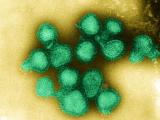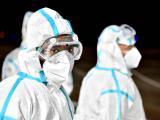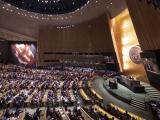Apr 12, 2011 (CIDRAP News) – Leaders from a World Health Organization (WHO) working group on virus sharing and vaccine issues related to pandemic preparedness today said they hope to reach an agreement by Friday (Apr 15) so that it could go to the World Health Assembly (WHA) for a vote in May.
The group's cochairs, ambassadors Bente Angell-Hansen from Norway and Juan Jose Gomez-Camacho from Mexico, briefed reporters today in Geneva, where the working group is meeting this week to finish what they hope is the final draft of the agreement.
In late 2006, virus sharing became an international flash point when Indonesia broke a long tradition of free international sharing of flu virus specimens by withholding its H5N1 virus samples as a protest against the high cost of commercial vaccines derived from such samples. The controversy has drawn attention to the problem of equitably distributing vaccines in the event of a pandemic.
In 2007 the WHO appointed a working group to hammer out an agreement to ease global virus-sharing issues, but so far problems such as intellectual-property rights and mechanisms for sharing the viruses and ensuring benefits for developing countries have stalled the group's progress.
Gomez-Camacho told reporters that the WHO asked him and Angell-Hansen to take over leadership to get momentum going again. He said that over the past year he and Angell-Hansen have conducted thorough consultations with governments, the pharmaceutical industry, and nongovernmental organizations (NGOs).
He said two major lessons of the 2009 H1N1 pandemic were that the world wasn't prepared for a severe pandemic and that the global community had a difficult time getting vaccine to developing countries. Gomez-Camacho said in some instances, developing countries lacked policies and infrastructure needed to accept donated vaccine.
The working group met with NGOs in February and sought written input from other such groups. Gomez-Camacho said the panel has had talks with pharmaceutical organizations from developing countries, and on Apr 7 held a private consultation with about 30 large companies. "These meetings are taking place within the context of complex negotiations," he said, adding that the talks were sensitive, because of pricing and intellectual property issues.
"We hope to wrap up the package by Friday in our last round of negotiations," he said. Ideally the framework, if adopted by the WHA, would serve as a guidepost for pandemic virus-sharing and vaccine issues for the next 5 years, after which technology advancements will likely require a review of the agreement and possible changes.
Angell-Hansen said the group is trying to build a flexible system that also shoots for more predictable vaccine production and sharing with developing countries. A major goal is to ensure a basic supply of pandemic vaccine for all countries, especially to protect healthcare workers and other key personnel. "We don't want states crumbling if there's a pandemic with a high mortality rate," she said, adding that she hopes the pact produces a "push button" system that funnels vaccine to areas in need.
Such a system will require monitoring of where the world stands in terms of production, lab capacity, and adjuvant availability, she said. Industry officials project that the global pandemic vaccine capacity has grown to 1.1 billion doses, which will expand to 1.8 billion doses as new companies in developing countries start producing vaccine through their collaborations with major producers, according to Angell-Hansen.
See also:
WHO virus sharing working group background materials
Apr 12 WHO press conference audio file




















